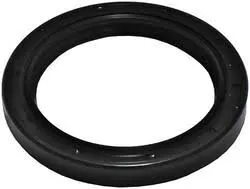10 月 . 13, 2024 11:48 Back to list
hydraulic oil seal
Understanding Hydraulic Oil Seals Their Importance and Applications
Hydraulic oil seals play a critical role in various industrial applications, ensuring the efficient operation of hydraulic systems. These seals are designed to prevent fluid leakage while maintaining pressure within hydraulic systems, making them indispensable in machinery and equipment that rely on hydraulic power.
The primary function of a hydraulic oil seal is to act as a barrier between moving parts, preventing hydraulic fluid from escaping the system. This is essential because leaks can lead to performance loss, increased maintenance costs, and potential damage to equipment. Moreover, hydraulic oil seals help to keep contaminants out of the hydraulic fluid, which can degrade fluid quality and compromise the system's efficiency.
Hydraulic seals are typically made from materials that offer excellent resistance to wear, temperature fluctuations, and the chemical properties of hydraulic fluids. Common materials used for hydraulic seals include nitrile rubber (NBR), fluorocarbon rubber (FKM), and polyurethane. Each material has specific advantages for example, NBR is widely used due to its good resistance to oil and abrasion, while FKM is preferred for its high-temperature resistance and chemical compatibility.
hydraulic oil seal

There are various types of hydraulic oil seals, including O-rings, V-rings, and U-cups. O-rings are circular seals that fit into a groove and compress to create a tight seal. V-rings have a V-shaped design that allows them to seal on a rotating shaft while preventing dirt ingress. U-cups, on the other hand, are designed for static and dynamic applications, offering strong sealing capability in dual-direction pressure systems.
Choosing the right hydraulic oil seal is crucial for the longevity and efficiency of the hydraulic system. Factors such as the system’s operating temperature, pressure, and the types of fluids involved must be considered. Incorrect seal selection can lead to premature failure, resulting in costly repairs and downtime. Therefore, consulting with seal manufacturers or experts who understand the specific requirements of hydraulic applications is essential.
Regular maintenance of hydraulic systems also includes inspecting and replacing worn-out seals. Over time, seals can degrade due to heat, pressure, and exposure to chemicals, leading to leaks and performance issues. Implementing a preventive maintenance schedule can help identify potential problems before they escalate, ensuring that the hydraulic system remains in peak operating condition.
In conclusion, hydraulic oil seals are vital components in maintaining the integrity and efficiency of hydraulic systems across various industries. Their ability to contain fluids, prevent contamination, and sustain pressure makes them essential for the reliable operation of machinery. Investing in high-quality seals and adhering to maintenance best practices can significantly enhance the performance and lifespan of hydraulic systems.